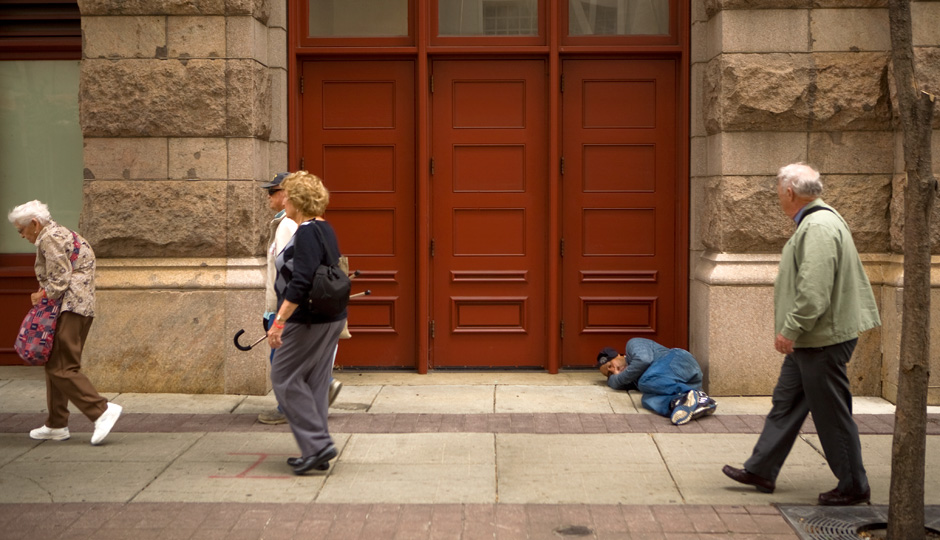Philly to Focus Outreach to Homeless on Center City “Hotspots”

Tourists walk past a homeless person during Pope Francis’ visit to Philadelphia. | Photo by Bradley Maule
The Kenney administration announced a new strategy to fight panhandling and street homelessness in Philadelphia on Monday, one that will focus existing outreach efforts on Rittenhouse Square, the Convention Center, South Broad Street and Market East.
Those areas were identified as “hotspots” by the Office of Supportive Housing, which administers many of the city’s homelessness programs, with help from the Center City District. The office is hoping that the initiative will help the city gather better data about who is living on the streets while “alleviating the concerns” of tourists and intervening directly with homeless people to get them to take advantage of city services and, eventually, provide them with housing.
Liz Hersh, director of the Office of Supportive Housing, announced the initiative Monday at City Hall, surrounded by Mayor Jim Kenney, Councilwoman Jannie Blackwell, Philadelphia Housing Authority President Kelvin Jeremiah, Dr. Arthur Evans of the Department of Behavioral Health, and dozens of housing and social services advocates. Hersh was hired by the Kenney administration to run the office after years as an advocate with Pennsylvania Housing Alliance.
She applauded the mayor on Monday, saying he has been “a tremendous champion for the poorest and most vulnerable people in our city.”
Kenney said that he had started out his political career believing that homelessness was a police problem, but now believes the city should stop criminalizing homeless people. Kenney said the initiative, focused on downtown areas with high pedestrian traffic, isn’t meant to keep homeless people out of sight ahead of the Democratic National Convention this summer. In fact, he said, he’s hoping to enlist some national Democrats to help bolster the city’s homelessness outreach efforts.
In April, the city received $28 million in grants from the federal Department of Housing and Urban Development to continue funding programs that provide housing and services for people experiencing homelessness. Hersh said that the city has also been able to house 1,100 chronically homeless people in the city since 2012 through a partnership with PHA.
The new outreach effort will be carried out with “existing resources,” Hersh said, with the addition of one small outreach unit focused on drug and alcohol addiction. The efforts will be targeted during morning and evening commuter rush hours and during lunchtime, Hersh said.
Follow @JaredBrey on Twitter.